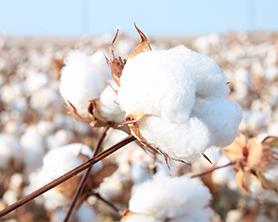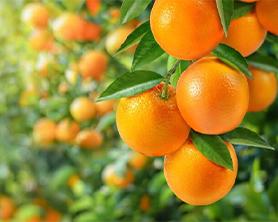Elements
Calcium (Ca)
Calcium (Ca) is one of the major secondary nutrients in plants, and it is not a mobile element in the soil or within the plant. Therefore, symptoms of calcium deficiency appear on young leaves and shoot tips. Calcium plays many physiological roles in plants, including:
- It has a significant role in the formation of cell walls, contributing to the hardness of plant tissues and increasing tolerance to certain bacterial and fungal diseases, as well as enhancing the storage capacity of fruits, tubers, and bulbs.
- Calcium is essential in pollination and fertilization, influencing pollen tube growth inside the ovary, reducing fruit drop rates, and increasing fruit set and yield.
- It reduces the toxicity of certain inorganic nutrients, such as sodium and magnesium, which can accumulate to toxic levels.
- Calcium also plays an important role in plant tolerance to adverse weather conditions, including high temperatures, frost, and sudden drought or water shortages.
- It is critical for cell division and elongation, supporting the continued growth of meristematic tips, which are responsible for new growth.
- It is a key element in the resistance of fruits to physiological diseases.
- Calcium is also crucial for root growth and distribution, as well as vegetative growth.
- Furthermore, it plays an important role in promoting rhizobium activity and nitrogen fixation in legume plants.
Phosphorus (P)
Phosphorus (P) is one of the major nutrients essential for plants. While it is immobile in the soil, it is mobile within plant tissues. Phosphorus fulfills many physiological roles in plants, including:
- Being an integral part of nucleic acid structures and playing a major role in various enzymatic reactions.
- Plays a vital role in fats and phosphorus compounds synthesis with abundant energy such as: (ADP and ATP).
- Playing a vital role in the synthesis of fats and phosphorus compounds with high energy, such as ADP and ATP.
- Supporting respiration processes.
- Being essential for enzyme synthesis necessary for energy reactions during photosynthesis and respiration.
- Increases the percentage of flowering and fruit set.
- Stimulating root growth and development.
- Contributing to fat and protein synthesis in fruits.
Potassium (K)
Potassium (K) is a macronutrient essential for plant growth. It is a mobile nutrient in both soil and plants, meaning deficiency symptoms first appear on older leaves. Potassium plays a vital role in numerous physiological processes within the plant, including:
- Playing an essential role in the photosynthesis process.
- Regulating the opening and closing of stomata, which affects the plant's ability to absorb water and nutrients.
- Enhancing the plant's resistance to environmental stress factors such as high temperatures, frost, drought, and salinity.
- Being crucial for protein and starch formation by activating the enzyme responsible for this process.
- Contributing to the activation of more than 66 enzymes involved in oxidation, reduction, protein synthesis, and the regulation of osmotic pressure within plant cells.
- Strengthening plant resistance to many fungal and insect diseases by increasing the hardness of plant cell walls.
- It plays an important role in increasing the thickness of cellular walls, while potassium deficiency leads to weakened vascular tissues.










